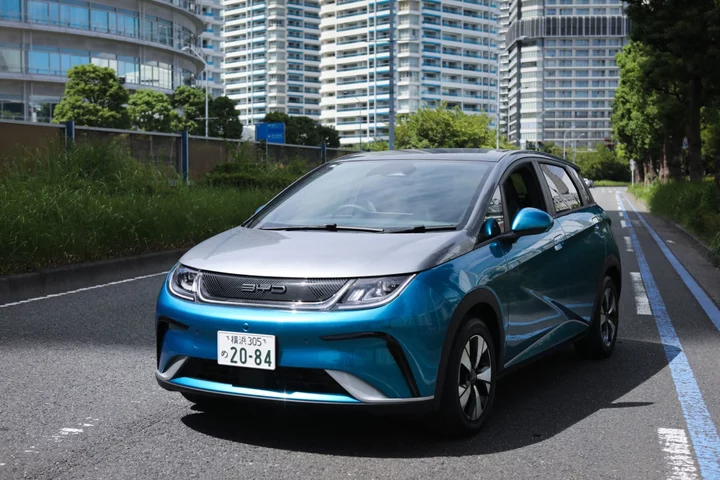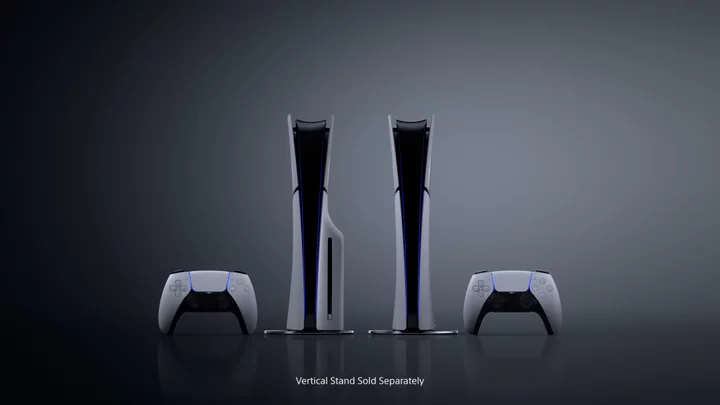The pressure is on domestic carmakers at this week’s Japan Mobility Show to prove they’re serious not only about going carbon neutral, but also revolutionizing the way people and goods move around.
The event gets underway Thursday as the rebranded successor to the Tokyo Motor Show, which began in 1954 and was last held in 2019, attracting 1.3 million attendees before going into hiatus during the pandemic. The goal this year is to get 1 million visitors, organizers said.
Toyota Motor Corp., Honda Motor Co., Nissan Motor Co. and their Japanese peers have long been criticized for their hesitation to phase out gasoline-powered cars. This week, they’ll pepper the show floor with electric vehicle concepts to send the message they’re willing and able to make battery-powered car sightings more common on the country’s roads in the years to come.
Battery-electric vehicles accounted for just 1.5% of new-car sales in Japan in 2022, lagging well behind other wealthy countries, according to BloombergNEF. By comparison, almost one in five new cars sold were battery-electric in China, which became the world’s top auto exporter early this year.
“There’s a strong concern that the growing costs of energy and labor will make it difficult to manufacture in Japan, let alone sell cars,” said Masami Tanaka, director general of the Japan Automobile Manufacturers Association’s Next-Generation Mobility Division. “Key industries need support for the sake of the country’s economic growth.”
Japan’s top carmakers pioneered the use of gas-electric hybrid powertrains, only to take the view that the global EV transition will take longer than expected and vary by region. They’ve advocated for multiple approaches to reducing emissions, which has drawn the ire of environmental advocacy groups.
For this week’s show, while almost 500 companies have signed up, only three foreign carmakers will be on display: China’s EV leader BYD Co., and German’s Mercedes-Benz Group AG and BMW AG.
The lack of EV uptake in Japan also applies to non-Japanese companies — although Mercedes-Benz, BYD and Hyundai Motor Co. have started offering fully electric cars in Japan, early sales have been slow. The potential for Chinese brands such as BYD to grow in the country is limited, according to Bloomberg Intelligence senior auto analyst Tatsuo Yoshida.
“The Mobility Show is a good opportunity to better understand their business strategy,” Yoshida said.
Toyota’s luxury brand Lexus will reveal a lineup of battery-electric concept cars, leaning into its role as the centerpiece of the automaker’s electrification strategy announced earlier this year. Toyota-branded EV concepts will include a sleek SUV called FT-3e, and a sports car sharing major components called FT-Se.
Nissan has shared renderings of four EV concepts — the Hyper Urban crossover, Hyper Adventure off-roader, Hyper Tourer minivan and Hyper Punk compact — all of which feature angular, out-there designs.
Honda and Subaru Corp. will each stage electric sports car concepts, while Suzuki Motor Corp. will premiere a mini electric wagon.
Most Japanese carmakers have made commitments to increase EV production and slash the emissions of their lineup, though they’ve yet to produce a market-ready EV to compete with BYD or Elon Musk’s Tesla Inc. High-volume Japanese EVs are unlikely to hit the market in earnest until 2025, at the earliest.
(Updates with model details starting in the 10th paragraph.)









